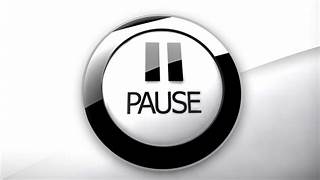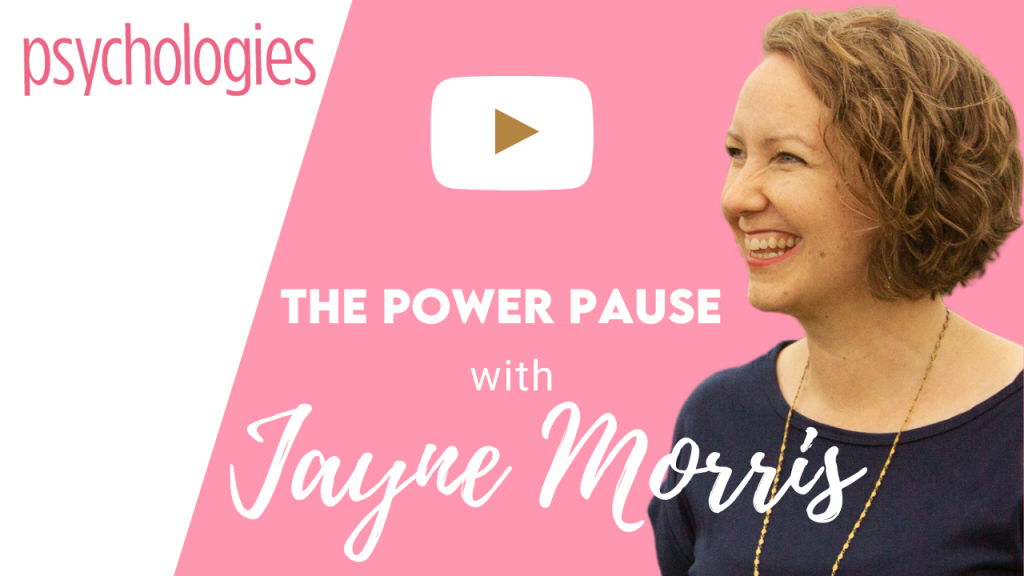The Power Pause: How Taking a Step Back Can Save Your Career

As women, we are told to push. Long before childbirth and in almost everything we do. As a result, we tell ourselves to “lean in”, “hustle” and “keep going”, as we power on through the relentless back-to-back demands of our daily lives. As we push harder, we sleep less, hoping that somehow our fatigued bodies and foggy minds will catch up. We are so scared to stop. We think stopping will mean we will lose it all. But, what if stopping was the one action that could not just protect our health, but also our careers?
Across the UK, an increasing number of professional women are giving themselves permission to pause. Some are choosing to take a step back by changing roles, others by reducing hours, or even taking a temporary break – and not just to have babies. They aren’t downshifting because they are downgrading, they are downshifting as a strategic move to support them in levelling up.
They are taking a power pause.
Unlike burnout, which can creep up on us like quicksand and enforce crisis career breaks that often come at huge career cost, a power pause is intentional. It is a conscious choice to step away for a few months to rest, reset and return stronger.
As the UK’s leading burnout coach, I’ve seen the devastating consequences when people ignore the warning signs of an impending burnout for too long. Yet I’ve also witnessed how powerful it can be when someone presses pause on their own terms.
Why pausing feels so hard
Our relationship with rest is in need of a rebrand. We are taught from a young age to “work hard” and “do our best”. As a result, rest has taken a back seat and been seen as an indulgence we can’t afford. Productivity has become currency. If we aren’t being busy all of the time, we feel like we are wasting time or that others will perceive us as weak. On paper, rest should be simple. Take time off, recharge, come back fresh. Yet in reality, our cultural
conditioning makes this deeply counterintuitive.
We have convinced ourselves that constant exhaustion is just how it is for everyone. We’ve normalised “pushing through”. But it isn’t normal. It isn’t natural. It isn’t sustainable. Research shows that ongoing stress impacts every system in the body. It impairs focus,
memory and decision making. We find it harder to connect to our intuition, creativity and the clarity of thought that helps us make decisions. Our hormones are disrupted, impacting on our emotional regulation. Physically we experience all kinds of signs and symptoms of
strain, indicating that our immunity is weakening and our cardiovascular system is struggling.
Put bluntly: not resting as a result of pushing on is far more dangerous than stopping.
Burnout vs. Power Pause
Burnout isn’t a badge of honour. It’s the body’s emergency brake. When exhaustion extends into total collapse, the recovery time becomes an unknown quantity that can stretch into months or years, ruining both careers and confidence.
A power pause, on the other hand, is a proactive strategy for self-leadership. It is a game changer. Instead of waiting until collapse, you actively choose to pause. You give yourself time to rest and recalibrate instead of taking things to the edge. The result? A rebalanced relationship with your work that brings vitality and longevity back to your body and your career.
Many of my clients who’ve taken power pauses return with refuelled passion, purpose, creativity and confidence. Far from damaging their careers, these breaks protect and up-level them.
What a Power Pause can look like
A power pause doesn’t need to mean quitting your job or disappearing indefinitely. It could be:
- A 1–6 month sabbatical, negotiated with your employer.
- A career break between roles, intentionally carved out before your next step.
- An unpaid leave of absence, framed as a reset rather than a resignation.
- A planned pause to focus on wellbeing, study, or caregiving without abandoning your professional identity.
The common thread? Choice. A pause made on your terms, rather than one that’s come due to collapse.
10 Tips for Negotiating a Power Pause
If your contract doesn’t mention sabbaticals, don’t be discouraged. Many of my clients have
successfully created bespoke agreements with their employers. Here’s how:
- Lead with value. Frame your request as an investment in long-term productivity,
creativity, and retention. - Choose your timing. Align the conversation with business cycles, propose it for a
period directly after a project milestone or during a quieter season. - Do your research. Even if sabbaticals aren’t official, there may be other examples of
them that you can find within your company or sector. - Present solutions. Offer handover plans, temporary cover options, or phased
transitions. Make it easy to say yes. - Suggest flexibility. Propose trial arrangements, reduced hours, or hybrid models as
stepping stones towards your extended break. - Link to loyalty. Emphasise that taking a break in the near future increases your
commitment and reduces risk of attrition further down the line. - Highlight innovation. Position rest as an enabler of fresh thinking, resilience, and
problem-solving. - Negotiate openly. Be prepared to compromise in terms of unpaid leave, reduced
salary, or different structures that may emerge. - Protect your pause. Make it clear this is true time away, not a disguised work-from-
home stint. You’ll need to have clear boundaries for your break to be worthwhile. - Plan your return. Map out reintegration, showing foresight and commitment to
continuity.
Employers are increasingly recognising that burnout is far costlier than a temporary absence. A power pause can help prevent absenteeism, presenteeism and leavisim. Framing your pause as a strategic decision for mutual benefit can be remarkably persuasive.
The hidden gifts of pressing pause
When Hannah, a high-achieving architect working for an international firm, took a power pause it challenged her tremendously to trust her body and give herself the break that she so deeply needed. Since a young age she had approached everything in life at one hundred miles per hour, striving to exceed the expectations of all around her. Working in a very male dominated profession, she felt additional pressure to prove herself and be a role model for
younger women coming into the business.
Hannah had become preoccupied with how best she could position herself for the next promotion, she was thinking about its night and day. After a series of weeks of not sleeping properly, it occurred to her that in overthinking things, she was hampering her own success. Out of the blue she also happened to receive some shocking news about a family member tragically passing away due to a heart attack brought on by stress. In that moment she became aware of a quiet inner voice suggesting she should stop. She courageously listened. The next day she spoke to her Department Head and successfully negotiated a three-month
break. Shortly afterwards she reached out to me for coaching support.
In our work together we explored her inner drivers and uncovered the deep-rooted beliefs that had fuelled her relentless pace, helping her reframe success in a way that honoured both her wellbeing and her ambition. As a result, Hannah was able to return to work with a renewed approach as well as a healthier relationship with rest, boundaries, and balance. What began as the most difficult decision of her career became the very thing that allowed her to thrive in it. When she returned, she did so with new clarity and resilience. Within a year, she was promoted from Senior Associate to Equity Partner, a move she credits not to driving harder, but to pausing long enough to realign her approach. Her power pause had not cost her ambition, it had safeguarded it.
Giving yourself permission
Although we may need the buy in from someone else in order to take a power pause, we first need to fully believe in the idea for ourselves. Not just believe it will benefit us, but also believe that we are worth it. Often the hardest step of all is to honour ourselves. Saying yes to ourselves and putting our own needs first can feel very uncomfortable when we are used to self-sacrificing, but it is imperative in burnout prevention. So, if you’ve been teetering on the edge for too long, ask yourself “what might I gain by pressing pause before burnout forces me to stop?”
A power pause is not absence, it’s presence. It’s choosing sustainability over self-sacrifice.
Burnout to Brilliance
A power pause is not about stepping away from ambition, it’s about stepping into it more sustainably. When we give ourselves permission to stop, we signal to our nervous system that it is safe to rest and create the conditions to thrive, both personally and professionally.
If you’re ready to explore how a pause could become your turning point, my new programme Burnout to Brilliance begins on 23rd September 2025. This 12-week journey is designed to guide you through recovery, renewal, and return – so you can step back into your life and work with strength, clarity, and brilliance. Inspired by my best-selling book, “Burnout to Brilliance: Strategies for Sustainable Success” the programme weaves together insights from nearly two decades of my work as the UK’s leading Executive Burnout Coach – so that you can learn what has worked for others, gain inspiration and rediscover not just balance, but brilliance.
🎥 Watch now – and discover how taking a step back can save your career.
Burnout Coach Jayne Morris
Bespoke burnout recovery coaching programmes & retreats
Jayne Morris is the author of Burnout to Brilliance: Strategies for Sustainable Success. Jayne has over fifteen years’ experience in the mental health field, specialising in Burnout Coaching as an ICF MCC Executive Coach and is accredited in PG Cert Business & Personal Coaching, as well as being a Postgraduate-level Tutor and Coach Supervisor. Jayne is a former NHS Online Health Sector Life Coach, endorsed by Professor Dame Clare Gerada MBE, Chair Royal Council General Practitioners NHS. Jayne additionally holds an Advanced Diploma in Integrative Art Psychotherapy and BSc Economics. Jayne is accredited by the International Coaching Federation, the Association for Coaches, European Mentoring and Coaching Council, and the National Council for Integrative Psychotherapy.




